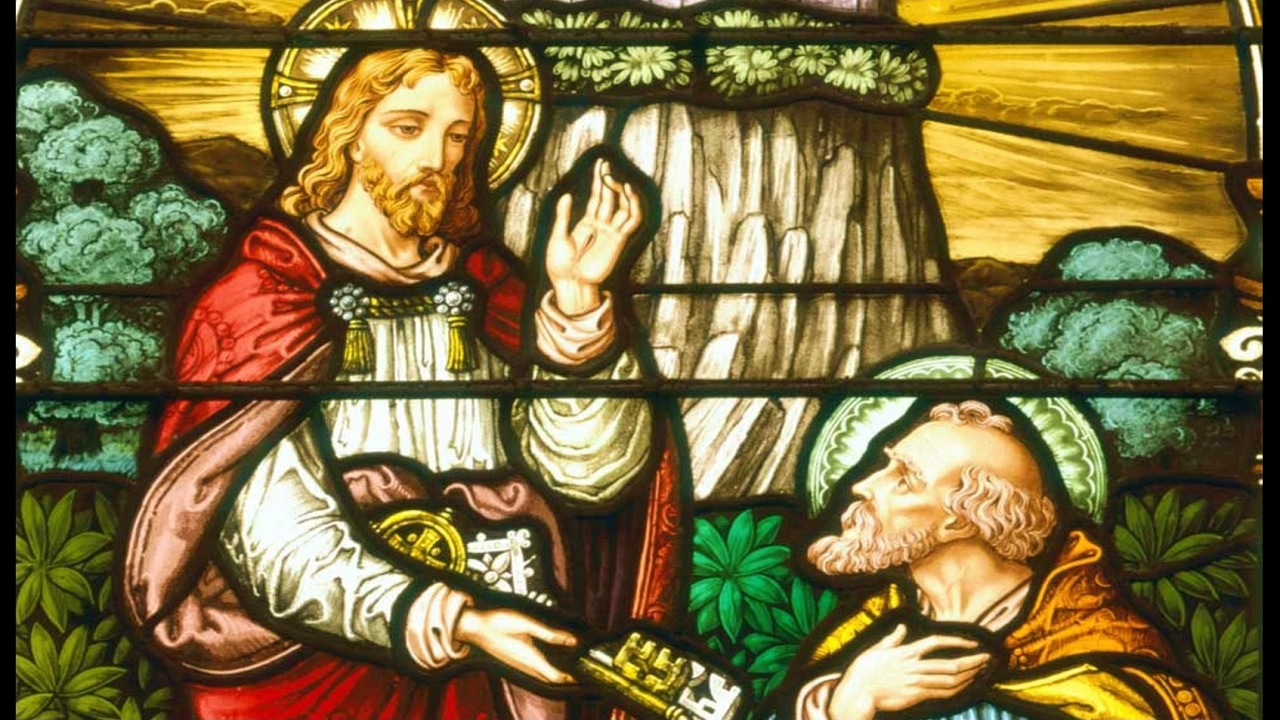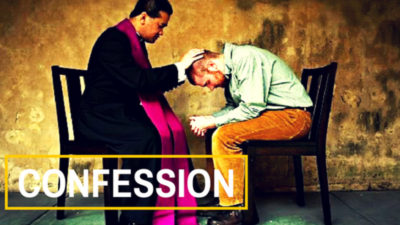February 27, 2022
|by N W
|
0 Comments
|
Deacon Mark
|
Conversion, Fasting, Lent, Prayer, Repentance
Eighth Sunday in Ordinary Time
February 27, 2022 — Year C
Readings: Sir 27:4-7 / Ps 92 / 1 Cor 15:54-58 / Lk 6:39-45
by Rev. Mr. Mark De La Hunt, Permanent Deacon
I have a tongue-in-cheek conversion story for you. My wife was preparing dinner, and I walked into the room and asked if she would like to listen to some music. She said, “Yes,” so I jokingly said, “Alexa, play risqué music.” Alexa paused and then said, “I can’t seem to find that, how about some Contemporary Christian music?” Ha! Our family’s musical habits have led Alexa to Christ. Hopefully, Alexa’s conversion goes viral in Amazon’s algorithms.
Alexa’s conversion, however, wasn’t a random thought while shaving. It leads into the fact that today is the last Sunday before Lent begins. Ash Wednesday is in three days. Interestingly, even though it is not a Holy Day of Obligation, it is in the middle of the week, and the Church tells you that “You are dust and to dust you will return,” and smudges ashes on your forehead. It tends to be well attended by young and old alike.
Why? I suspect it is because, in our heart of hearts, in the depths of our soul, we sense a call to conversion. And that call begins first with acknowledging that we are sinners, second, with the hope that we can be freed from sin, and lastly with confidence that Jesus is THE WAY to that freedom (Acts 19:9).
In the gospel, Jesus uses a bit of humor to open our eyes to our sin. “Can a blind person guide a blind person (Lk 6: 39)?” How many times have we chuckled and said, “There goes the blind leading the blind,” as we watch one young or lost person lead another? It’s not that they are bad in some way, but more that they don’t know what they don’t know and so, as Jesus said, “Both fall into a pit (Lk 6:40).”
There is a saying that doctors do not self-diagnose well. The spiritual equivalent of that wisdom is that the person who is his own spiritual director has a fool for a spiritual director. Jesus said it this way, “Why do you notice the splinter in your brother’s eye, but do not perceive the wooden beam in your own (Lk 6:41)?” The truth is, we are better at perceiving another person’s flaws and sins than we are our own. We need help to see that beam in our eye, so that we can progress in virtue and move towards deeper conversion.
Who do we turn to, to help us “see the wooden beam in our eye” and to help us learn how to remove it? We turn to Jesus… in prayer, in the scriptures, in examining our conscience, in going to Confession, and in coming to Mass. It is Jesus that we hear in the readings at Mass and in the homily. It is Jesus we speak to and are forgiven by in Confession, and it is Jesus we receive in the Bread of Angels (Jn 6:51, 53). In all these forms, Jesus helps us notice that uncomfortable, aggravating wooden beam in our eye.
Once we recognize it, we can repent and begin the Lenten journey of deepening our conversion, from being centered on self to being centered on Jesus. In fact, that is what repent means, to turn away from MY WAY to Jesus’ WAY; THE WAY (Acts 2:38; 19:9). His way is conversion, and it will lead us to grow in the virtues of Faith, Hope, and Love (1 Cor 13;13).
To acknowledge this spiritual need for conversion, only through Jesus, is a mark of Christian humility, the virtue required to progress in all other virtues. Thus, it is the arch virtue. Satan is powerless against it, because he is eaten up by pride. He can’t understand and therefore cannot defeat humility. Mary and Joseph had humility in spades, and they passed that virtue on to Jesus who perfected it in His obedience in the Garden, and His Passion and Death.
Humility is not natural to us, though. It must be practiced. Lent is set up to help us practice humility through the three pillars of repentance or conversion explained by Jesus in Matthew 6:5-18. Those pillars are Prayer, Fasting, and Almsgiving or Charity. We practice humility through Prayer, where we are a humble beggar before God, fully aware that we can do nothing good without Him (CCC 2559-St. Augustine). We practice humility through Fasting, where we deny ourselves enough that we might fail and therefore be humbled by how weak we are. And we practice humility through Charity, where we are humbled by the gratefulness of the people we love through acts of mercy and kindness.
Accordingly, the Church teaches us that Fasting, Prayer, and Charity “express conversion in relation to oneself (fasting), to God (prayer), and to others (charity) (CCC 1434). Jeff Cavin’s bible study on the Gospel of Matthew said it another way. He said fasting combats lust of the flesh, prayer combats pride of self, and charity combats lust of the eyes (Mt 6: 1-18; 1 Jn 2:16).
Between now and Wednesday ask the Holy Spirit to help you choose how you will fast, pray, and do good for others during Lent. The Church asks those between the ages of 18 and 59 to fast on Ash Wednesday and Good Friday and those age 14 and up to abstain from meat every Friday of Lent (USCCB.org). That is the minimum. We can go beyond that. I recommend abstaining from activities we spend too much time doing or from devices or hobbies we spend too much time on. In doing so, we free up time for Prayer and Charity. And the charity is enhanced by the grace coming from that extra prayer. You see, the three pillars are mutually reinforcing.
For prayer, consider trying a different type of prayer like Lectio Divina, where you read a passage from the Bible and ask God what it means for you. Or pray the Rosary, which is a meditation on the key moments of Jesus’ life. Or Liturgy of the Hours, which is prayer using the Psalms and Hymns prayed in the morning, mid-day, evening, and night. You could do just morning and night if you are busy with children and work. Stations of the Cross on Fridays of Lent are another great way to pray. And do not forget that Mass is the greatest prayer we have; consider going during the week where you can.
For Charity or Almsgiving, consider abstaining from eating out and movies, etc., and keep track of the money saved, and give it to the poor at the end of Lent. Call people you need to call, especially the homebound and sick and your children or parents you don’t speak with enough. Do random acts of thoughtfulness for your spouse like you did when you were falling in love. If you can, serve at one of our community charities for the poor.
I do not think I can summarize Lent much better than St. Paul did in today’s second reading from 1 Cor 15. “Therefore, my beloved brothers and sisters, be firm, steadfast, always fully devoted to the work of the Lord, knowing that in the Lord your labor is not in vain (1 Cor 15: 58).
Lent, like exercise, hurts so good, when we push ourselves as spiritual athletes in Prayer, Fasting, and Charity. And if we stumble, we get back up. Jesus does not need us to be perfect. He only needs us to get up each day, lace ’em up, and go at it again persevering in faith.
Our young like hype songs before big events. If I were to ask our new convert, Alexa, to choose a hype song to be a theme for Lent, I think she would play Zach Williams’ song, “Less Like Me”. I’m going to pray the first three verses from it. If you start praying it in song, feel free to prayerfully do so.
[Lord], I have days I lose the fight
Try my best but just don’t get it right
Where I talk a talk that I don’t walk
And miss the moments right before my eyes.
Somebody with a hurt that I could have helped
Somebody with a hand that I could have held
When I just can’t see past myself
Lord, help me be…
A little more like mercy, a little more like grace
A little more like kindness, goodness, love, and faith
A little more like patience, a little more like peace
A little more like Jesus, a little less like me.
Lord, may we have faith, that no matter how many times we lose a fight during this Lent, we may confidently pray St. Paul’s words, “Thank God who gives us the victory through our Lord Jesus Christ (1 Cor 15:57).”
Amen
KEEP READING
 540-586-8988
540-586-8988 








